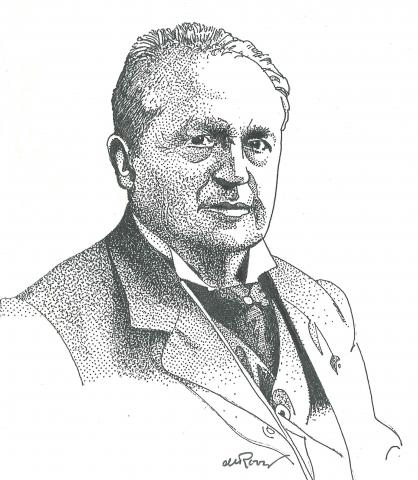A revised and updated version of
Abraham Kuyper: An Annotated Bibliography 1857-2010 by Tjitze Kuipers (2011)
You can buy a printed edition of this book on the site of the publisher.
1902
On September 23, 1902, Kuyper spoke in his capacity as minister of the interior about the draft reply to the queen’s throne address in the Second Chamber (pp. 46–51). On October 1, he commented on a bill giving women employed in herring processing plants limited rights to work at night (pp. 91–101; see 1905.12). Deliberations on the national budget for 1903 determined his speeches and necessitated shorter contributions during the remainder of the calendar year (pp. 400–666). On December 6, in a long memorandum in reply, Kuyper discussed all kinds of budgetary matters, giving account of his policies and reflecting on their connection to Christian political principles (pp. 400–408). In this memorandum he also discussed the 1900 annual report of The Union: “A School with the Bible,” which offered a proposed solution to the “school question.” During the period December 9–17, he discussed a range of budget items and other matters in speeches and shorter comments (pp. 525–666). He announced the death of Vice Admiral G. Kruys (1838–1902), minister of the navy, to the Second Chamber on December 12, giving a brief eulogy. Kuyper went on to discuss homeopathy (pp. 542 and 556), psychiatric care (pp. 546–556), the problems of alcohol (pp. 552–554), educational matters (pp. 572–635), and labor issues, banking, and the insurance business (pp. 644–662). He concluded the final month of the 1902 session of Parliament by making a few very brief remarks about various bills (pp. 663–666) that were of little consequence because they only addressed a few local affairs (pp. 889–893).

